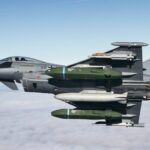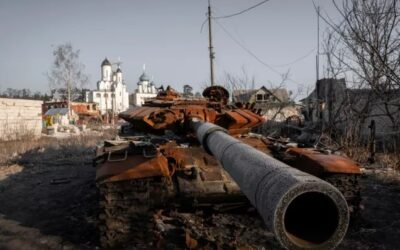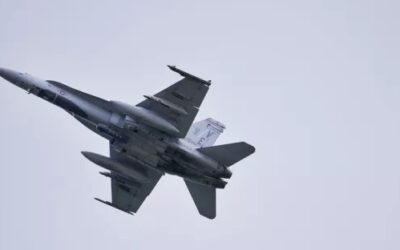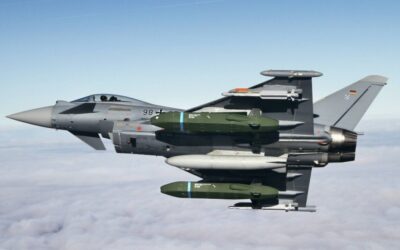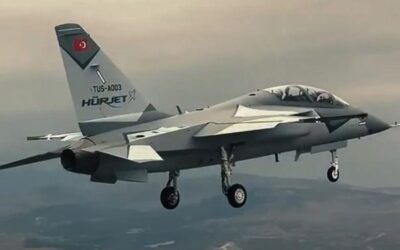North Korea’s losses in the Russia-Ukraine war are heavy, as more than 1,000 North Korean soldiers have been killed or injured…
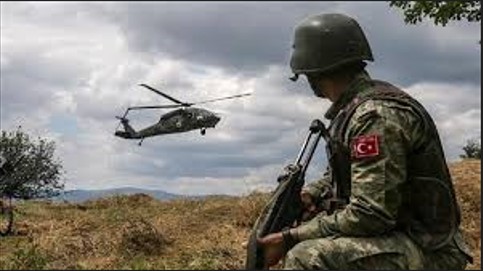
The representative of the Turkish Ministry of Foreign Affairs, Oncu Ketseli, speaks for Turkey’s suspension of participation, but not its withdrawal, from the Treaty on Conventional Forces in Europe (CFE). He clarified that the suspension of the Treaty’s implementation is a decision subject to future revocation.
According to the state-run Anadolu news agency, the representative of the Turkish Foreign Ministry, Oncu Ketseli, said that the NATO Council made a statement on this issue on November 7. The effective date of decisions by NATO Allies, parties to the CFE Treaty, to suspend the application of the Treaty is determined by each Ally within the framework of its national legislation.
The suspension has already been put into effect by the vast majority of allies that are parties to the CFE Treaty. The internal legal process for the effective date of the decision to suspend the application of the CFE Treaty as of April 8, 2024 has been completed and the relevant Presidential Decree was published in the Government Gazette dated April 5, 2024, he concluded.
Also read: Open Skies | Following US, Russia now withdraws from the treaty
The CFE Treaty was signed in 1990, just one year after the fall of the Berlin Wall and the end of the Cold War. The Treaty set restrictions on the conventional military equipment that NATO and the then Warsaw Pact could deploy, so that they could not build up forces that would allow one side to launch a swift attack on the other in Europe.
Russia formally withdrew from the CFE treaty on November 7 last year, but had suspended its active participation since 2015. Following Russia’s withdrawal, the US had also suspended the implementation of the treaty.
With a decree signed by Erdogan, Turkey announced that it is suspending its participation in the Treaty on Conventional Forces in Europe (CFE), effective April 8. The CFE set restrictions on the volume of conventional weapons within Europe and was signed in 1990 between NATO and the Warsaw Pact (by a total of 30 countries).
For Turkey in particular, the suspension does not signal anything in terms of armaments, as the restrictions of the Treaty concerned only its central-western part. So Ankara could overcome any restrictions, moving weapon systems outside the specific geographical zone. Also, the limits of the Treaty in the number of weapon systems were high and did not restrict Ankara in its military equipment.
With information from: APA MPA
Also read: Russia | “Green light” to withdraw from nuclear test ban treaty
*Archive photo
READ MORE
Syria | New Minister of Defence Murhaf Abu Kasra
Syria’s new leaders have appointed Murhaf Abu Kasra, a prominent figure among rebels who ousted Bashar al-Assad, as…
Red Sea | A US Fighter Jet was Shot Down by Friendly Fire
A US fighter jet was shot down by friendly fire over the Red Sea on Sunday, as announced by the headquarters of the US armed…
Losses for North Korea in Ukraine | 1,100 soldiers have been killed or wounded
North Korea’s losses in the Russia-Ukraine war are heavy, as more than 1,000 North Korean soldiers have been killed or injured…
THEON INTERNATIONAL | Projection for continued growth for the financial year 2025 with a high margin for profitability
THEON INTERNATIONAL PLC (THEON) has announced its projections for the financial year 2025. Revenue is expected to…
Greece | PDPA’s “yes” to Placing Police Cameras on the Streets
The Personal Data Protection Authority gave the green light to the Hellenic Police’s placement of cameras on the streets to prevent and…
MBDA | Modernising TAURUS Missiles for the Bundeswehr
The Bundeswehr and TAURUS Systems GmbH (a joint venture between MBDA and SAAB) have signed a contract for the maintenance and…
Syria | New Minister of Defence Murhaf Abu Kasra
Syria’s new leaders have appointed Murhaf Abu Kasra, a prominent figure among rebels who ousted Bashar al-Assad, as…
Turkey – Spain | Memorandum of Cooperation for the Development of Turkish Hurjet Training Aircraft
Turkey and Spain have signed a Memorandum of Understanding (MoU) to develop Turkish-made Hurjet trainer-light fighter aircraft.











